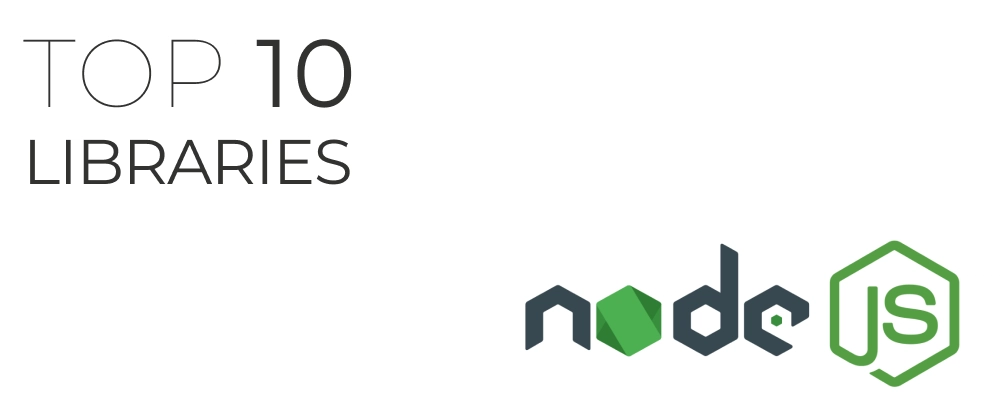Node.js provides a robust ecosystem with thousands of packages available via npm (Node Package Manager). Choosing the right packages can significantly enhance your development experience and productivity. Here are the top 10 npm libraries you should consider for your Node.js projects, along with explanations on why and how to use them:
1. Express
Express is the most popular minimalistic web framework for building web applications and RESTful APIs.
Why Use: Simplifies server setup, routing, middleware integration, and HTTP request handling.
How to Use:
npm install express
const express = require('express');
const app = express();
app.get('/', (req, res) => res.send('Hello World!'));
app.listen(3000);
2. Lodash
Lodash provides utility functions for common programming tasks.
Why Use: Reduces code complexity and increases readability when handling arrays and objects.
How to Use:
npm install lodash
const _ = require('lodash');
console.log(_.chunk(['a', 'b', 'c', 'd'], 2));
3. Axios
Axios is a promise-based HTTP client for making asynchronous requests.
Why Use: Offers easy-to-use APIs and supports features like interceptors, request cancellation, and automatic JSON parsing.
How to Use:
npm install axios
const axios = require('axios');
axios.get('https://api.example.com').then(response => console.log(response.data));
4. Mongoose
Mongoose simplifies interactions with MongoDB through an object-oriented approach.
Why Use: Provides schemas, validation, and query building.
How to Use:
npm install mongoose
const mongoose = require('mongoose');
mongoose.connect('mongodb://localhost/test');
5. Dotenv
Dotenv manages environment variables securely.
Why Use: Keeps sensitive information out of source code.
How to Use:
npm install dotenv
require('dotenv').config();
console.log(process.env.SECRET_KEY);
6. Winston
Winston handles logging effectively.
Why Use: Provides advanced logging features and supports multiple transports.
How to Use:
npm install winston
const winston = require('winston');
const logger = winston.createLogger({ level: 'info', transports: [new winston.transports.Console()] });
logger.info('Hello Winston!');
7. Passport
Passport handles authentication seamlessly.
Why Use: Supports multiple authentication strategies and simplifies user authentication management.
How to Use:
npm install passport
const passport = require('passport');
app.use(passport.initialize());
8. Cors
Cors enables Cross-Origin Resource Sharing.
Why Use: Allows secure cross-origin requests, crucial for frontend-backend interactions.
How to Use:
npm install cors
const cors = require('cors');
app.use(cors());
9. Joi
Joi validates data against predefined schemas.
Why Use: Ensures data integrity and enhances security by preventing invalid data processing.
How to Use:
npm install joi
const Joi = require('joi');
const schema = Joi.object({ username: Joi.string().required() });
10. Socket.IO
Socket.IO provides real-time, bi-directional communication.
Why Use: Ideal for applications requiring real-time updates like chats or multiplayer games.
How to Use:
npm install socket.io
const io = require('socket.io')(server);
io.on('connection', socket => console.log('New client connected'));
Final Thoughts
These npm packages cover various aspects of Node.js development from backend frameworks and databases to security and real-time interactions. Integrating these into your workflow can greatly streamline development processes.
What are your go-to npm packages? Share your recommendations below! 🚀



Top comments (0)